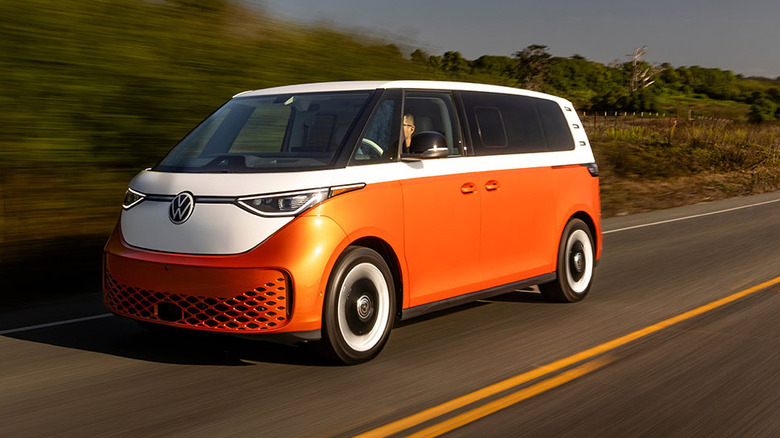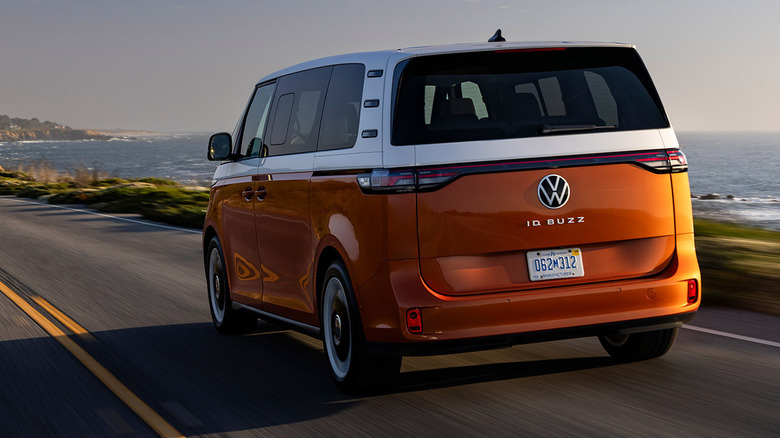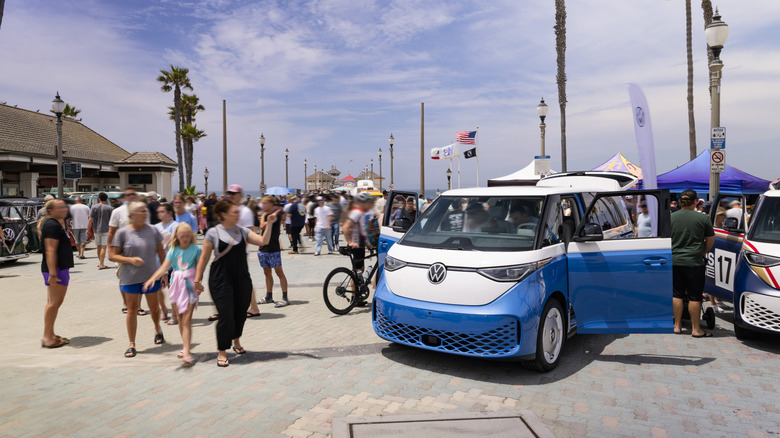VW Is Putting ID Buzz Production On Ice – Here's Why
If you were to come up with a list of the most hyped up, promising new vehicles of the last decade, Volkswagen's ID. Buzz electric van would likely place high on the rankings. Volkswagen first debuted the retro-influenced concept version of ID. Buzz back in 2017, which feels like an eternity ago — and a lot has happened since then.
The good news is that the production 2025 ID. Buzz is here and available right now, with styling and personality that holds true to the concept. The bad news for Volkswagen is that, due to a variety of factors, the appetite for the van has been smaller than anticipated. In fact, demand has been so low that Volkswagen recently paused production of the ID.Buzz at its Hanover factory in Germany due to what VW says are 'changed market conditions' and 'intense competition'.
This is obviously discouraging news for a vehicle that once generated so much excitement, but it's not entirely surprising. The ID.Buzz has been plagued with a frustratingly slow rollout – especially in the American market – as well as stop-sale orders, and most crucially, a price tag that many feel is far too ambitious for what the van actually provides.
Overpriced and underwhelming?
After a long development from concept to production, the ID.Buzz began deliveries in Europe back in the fall of 2022. But it wasn't until November of 2024 that the van began arrived in North America, more than seven years after Volkswagen first debuted the concept version. Rather than building pent up demand, the slow launch of the ID.Buzz in America ended up being ill-timed, with the van launching into a car market that has cooled significantly when it comes to high-priced electric vehicles.
The high price tag of the ID.Buzz has been a major issue for buyers, with the cheapest model currently having an MSRP after destination of over $61,000. When you combine that with a rather unimpressive EPA-rated driving range of 234 miles on a charge, it's not shocking that the van would be a hard sell for anyone but the most passionate VW fans.
Had Volkswagen managed to get the ID.Buzz onto American dealer lots a few years earlier, back when interest rates were low, cars were selling for over MSRP, and there were fewer EV competitors; things may have been more favorable for VW. But despite its 1960s-inspired looks, the ID.Buzz does not have a time travel function, and Volkswagen will need to figure out how to boost demand in today's climate.
Can the ID.Buzz be saved?
As it stands, the ID. Buzz currently faces serious competition from other, less expensive alternatives. It's hard to see a way for Volkswagen to increase sales without dramatically lowering the price. VW is reportedly planning to roll out increased incentives for the ID. Buzz, but it's hard to know if they will be enough to affect demand, especially in the American market, where many government-backed EV rebates have recently been phased out.
Once you get past its high price tag and mediocre driving range, there are lots of things to like about the ID.Buzz. Even though it's been over eight years since we first saw the concept, the van still draws eyes on the road like few other vehicles, with an undeniable presence that stands out in a sea of crossovers and SUVs. If Volkswagen could somehow find a way to get the ID.Buzz price more in line with traditional minivans or other electric CUVs on the market, there'd probably be a lot of buyers who would accept its mediocre driving range in exchange for its spacious interior, fun-to-drive personality, and eye-catching style.


